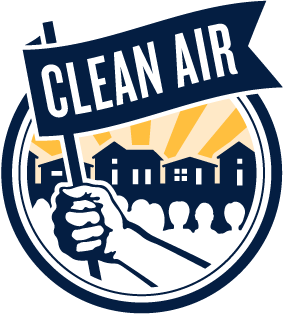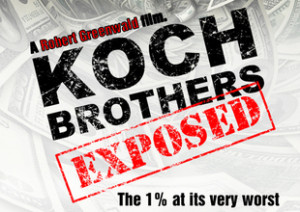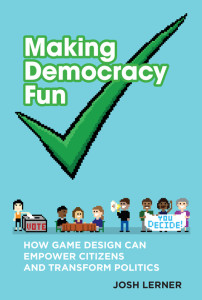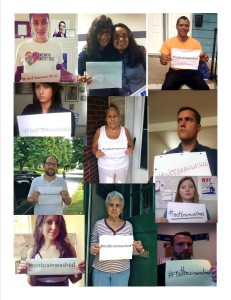Te necesitamos para mantener seguros a los residentes de Tonawanda!
ALERTA DE ACCIÓN!
Durante años, nuestros miembros han vivido con los olores y olores del crematorio de Amigone. Estamos cerca de asegurarnos de que los residentes nunca más tengan que soportar esto. Necesitamos que los legisladores que puedan votar sobre la resolución de Amigone voten SÍ el jueves. Necesitamos que los ayudes a tomar la decisión correcta. Si quieres ayudar al barrio a ganar, participa en cualquiera de estas actividades esta semana.
- LLAME a estas personas para agradecer su apoyo y pedirles que voten sí nuevamente el jueves., Octubre 2Dakota del Norte
| Nombre | Número de teléfono |
| Thomas Loughran | 836-0198 |
| Barbara Miller-Williams | 842-0490 |
| Peter Savage | 832-0493 |
| Kevin Hardwick | 858-8672: Dale más gracias por liderar la resolución.! |
- LLAME A ESTAS PERSONAS Y PIDA QUE VOTEN SÍ EL JUEVES
| Nombre | Número de teléfono |
| Pat Burke | 858-8480 |
| Betty jean subvención | 894-0914 |
- Venga a la Legislatura del Condado de Erie el jueves para la próxima votación. La reunión es en el 4ª piso en 92 Franklin y comience de inmediato en 2:00. Necesitamos empacar la casa para demostrar nuestro poder. Háganos saber que puede hacerlo llamando a Erin o Rebecca al 852-3813.
Reciclaje de batalla – Los residentes luchan por la calidad de vida
Desde que Battaglia Demolition comenzó a operar un poco más 10 hace años, los residentes de Peabody St. y el vecindario circundante se han quejado ante el estado y la ciudad de Buffalo con respecto al polvo y el hollín provenientes de la instalación.; Ruido fuerte que comienza temprano en la mañana de las excavadoras y la trituradora de concreto.; y tráfico masivo de camiones que se encamina por pequeñas calles residenciales.
Película de Vince Mistretta
Únase a la Mesa de Oradores de Aire Limpio!
Clean Air busca personas entusiastas para unirse a nuestra Oficina de Oradores Voluntarios!
Los voluntarios de la Oficina de Oradores ayudarán a difundir el mensaje del importante trabajo de Aire Limpio y alentarán a las personas a participar..
Responsabilidades
- Asista a la capacitación de la Oficina de Oradores
- Representar a Clean Air en una variedad de eventos comunitarios.
- Mantener una comprensión de la historia., misión, e impacto de nuestra organización
Calificaciones
- Le gusta hablar con la gente
- Oportuna y confiable
- Poseer transporte confiable
- Disponible para asistir a eventos durante la semana., noche, o fines de semana
Compromiso de tiempo
Se espera que los voluntarios de la Oficina de Oradores se comprometan a un mínimo de dos charlas por año, como oportunidades están disponibles. Se proporcionará capacitación para la Mesa de Oradores.
Llame a Rebecca 852-3813 o envíe un correo electrónico a Rebecca@cacwny.org
Los hermanos Koch al descubierto – 16 de septiembre
Koch Brothers Exposed revela a David y Charles Koch por usar sus miles de millones para comprar nuestro gobierno y aumentar su riqueza, a expensas de todos los demás.
El director Robert Greenwald cree que nuestro sistema no debería venderse al mejor postor. Greenwald se centra en varias noticias que los hermanos Koch han comenzado a examinar, como suprimir el salario mínimo, rompiendo sindicatos, privar de sus derechos a los votantes, y la injusticia ambiental.
Para ver el trailer haga clic aquí.
“Nueva película provocativa” Correo Huffington
“bien investigado” Piedra rodante
“No te pierdas esta película” La Nación
CUANDO: Martes, 16 de septiembre a las 18 h.
DÓNDE: Calle del río. Salón de Bomberos Voluntarios – 39 Avenida Kaufman. Tonawanda
GRATIS
El autor Josh Lerner habla sobre un enfoque más inclusivo & Democracia participativa
Nos complace recibir a Josh Lerner, autor de Hacer la democracia divertida en Talking Leaves Books, lunes, Septiembre. 8ese 7:30pm
Lerner es cofundador y director ejecutivo del Proyecto de Presupuesto Participativo en Nueva York.. Por mas de una decada, el ha desarrollado, investigó y trabajó con docenas de procesos de participación comunitaria y presupuestos participativos en América del Norte, América Latina y Europa. Completó un doctorado en Política en la Nueva
Escuela de Investigador Social y Maestría en Planificación de la Universidad de Toronto.
Sus artículos han aparecido en el Monitor de la Ciencia Cristiana, la Revisión Cívica Nacional, SÍ! Revista, Refugio, la Revista de Deliberación Pública, y el Journal of Public Budgeting, Gestión contable y financiera.
En Hacer la democracia divertida, Lerner se basa en más de una década de experiencia práctica y una extensa investigación, Lerner explica cómo las prácticas participativas se han integrado en una variedad de programas públicos en América del Norte y del Sur..
Únase a nosotros para una lectura y firma de libros GRATIS.
lunes, 8 de septiembre 7:30PM
Libros de hojas que hablan, 3158 Calle principal. Búfalo
Join the Clean Air Board!
Are you proud of Clean Air’s recent successes in the Tonawanda Coke campaign and the continued progress on the West Side? Concerned or frustrated with the environmental and health challenges that still threaten our community? Looking for a way to continue your involvement in keeping our community healthy and safe and our organization strong? Does any of this sound like you? Then you’ve got what it takes to apply to join Clean Air’s Board of Directors.
Members of the Clean Air Board of Directors come from many different backgrounds. We meet bimonthly, working cooperatively to help guide and shape Clean Air’s strategy, while keeping the organization stable, strong and effective. This includes planning and implementing fundraisers that help the organization continue its work. The most important skill we need in board members is a strong commitment to the health of our shared Western New York community and to Clean Air’s work and purpose. If you’re a Clean Air member, you’ve got both already. Te necesitamos!
Interested in learning more or in applying for a board position? Please get in touch with our office or fill out the application below and send to erin@cacwny.org We’ll be in touch about next steps!
Nombre:
Dirección:
Número de teléfono:
Email:
- ¿Por qué le gustaría ser miembro de la junta directiva de Clean Air??
- What skills can you offer to the organization as a member of the Board?
- What skills would you like to develop during your term of service on the Board?
- A significant part of the Board’s job is to raise funds for the organization. How can you contribute to raising funds for Clean Air?
- Being a member of the Clean Air Board requires a time commitment – there are bimonthly board meetings, subcommittee meetings, y eventos. ¿Está dispuesto y es capaz de dedicar aproximadamente 5 horas por mes para el servicio de la Junta?
- It is crucial that the Clean Air Board reflect the diversity of the communities that we serve. They Board should be inclusive in terms of age, raza/etnicidad, sexo, fe/religión, capacidad, identidad/expresión de género, orientación sexual, estatus económico social, y más. Please tell us about how you would support Clean Air in reflecting the diversity of the community.
- What questions do you have about the Board?
Call the Buffalo Common Council & Tell Them to Stand Up for Civil Rights & Aire limpio!
El miércoles, la Buffalo News published secret tapes that caught Peace Bridge Authority President Sam Hoyt and Department of Transportation officials talking candidly about their Peace Bridge Plans.
They called residents and our members “sleeping dogs” who they were “trying not to kick” and bragged about brainwashing Olmsted Parks into supporting the plan.
Well, we know that we are NOT brainwashed and can NOT be bought off.
It’s clear that we are being cut out of decisions that impact our lives. We don’t need more back-door deals, we need a process that includes us! Our people are sick and we need solutions that help solve the asthma crisis on Buffalo’s west side.
Juntos superamos nuestra meta de campaña de fin de año, we’re asking YOU to call the two councilmen who represent the neighborhood impacted by the diesel truck traffic from the Peace Bridge. We want to send a strong message that we are watching them, and that they must be transparent and include the community when dealing with the DOT and the Governor’s appointees on the Peace Bridge. We elect our representatives to speak on our behalf, not the DOT’s.
Help us amplify what you all have been saying all week by joining our call in day on Monday August 11th from 9am-4pm.
Here’s who to call:
Councilman Rivera 851-5125
Councilman Pridgen 851-4980
And if you’re really angry; Councilman Smith 851.5145
- Tell them who you are and that you are a constituent (or City of Buffalo Resident)
- Tell them you’re aware of how the Peace Bridge Authority (o una reunión organizada por la PBA durante el fin de semana y hacer una demostración de las casas el lunes) was speaking of residents – that they called us “dogs” and they were proud of “brainwashing” groups into supporting the plan
- Tell them the Common Council must demand the following:
- That the PBA should hold their meetings in the City of Buffalo, not just Canada so residents can attend
- That the Common Council must publicly denounce Sam Hoyt, Tony Masiello and Maria Lehman for their actions
- The Common Council must hold a special PUBLIC hearing on transparency and call the Peace Bridge Authority and DOT to the hearing to testify
- The Common Council must include the people most impacted by any future projects in all planning for trucking infrastructure
Please Remember…. Clean Air is a small staffed non- profit organization with a large impact.
Ayúdanos a llegar a la Conferencia de PB en Oakland!
Back in May we submitted a proposal to present at the 3rd International Conference on Participatory Budgeting in North America: Dinero real, Real Power and it was accepted!
Clean Air has been working hard over the past couple of years to implement a more democratic and participatory budgeting process in the City of Buffalo and tried to ensure that Tonawanda Coke’s fines from their violations stayed in the neighborhood and went towards community designed projects.
Our efforts to keep Tonawanda Coke’s fine money in Tonawanda and to get the City of Buffalo to adopt PB in their budgeting process have not gone unnoticed and we are so excited to share the work we’re doing in Western New York with an international audience.
But we can’t do it without contributions from our family, amigos, supporters and members! Attending this conference is important to us and our members not only because we will be presenting, but we will also get to learn from others who have implemented PB where they live and will return ready to share the skills and knowledge we need to make PB happen in our communities.
We are working hard to reach our goal through various fundraising events, but every bit helps. If you are reading this I am asking you to please dig deep and make a contribution of upwards of $50 to help get us a step closer to making this amazing opportunity a reality and to pass this message along to your friends who also love democracy.
You can donate* online at www.cacwny.org/donar or by sending a check to Clean Air, 52 Linwood Avenue, Búfalo, Nueva York 14209, calling our offices 716.852.3813 or reaching out to any one of our fine delegation attending the conference: Natasha Soto, Rebecca Newberry, William Yelder, Tangia Delk and, Glenn Ratajczak.
Thank you for taking the time to read this “letter” and for your donation (in advance) towards a healthier, happier and more participatory democracy here, locally.
Vídeo: Tangia Delk, Will Yelder and Natasha talk to Artvoice TV about PB
*please make a note that your donation is for the PB Conference. Thanks again!
Common Council toma medidas para llevar PB a Buffalo!
Julio 22, 2014
Common Council to Explore Participatory Budgeting in Buffalo
New group will develop recommendations for implementing process in the Queen City
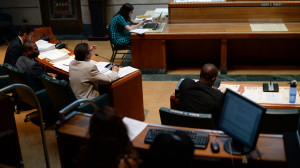
BÚFALO, NY - El Consejo Común votó hoy unánimemente para establecer un grupo de trabajo para aprender más sobre el Presupuesto Participativo y desarrollar recomendaciones para implementar el proceso en Buffalo.. Participatory Budgeting is a different way to manage public money, and to engage people in government. Es un proceso democrático en el que los miembros de la comunidad deciden directamente cómo gastar parte de un presupuesto público.. It was first developed in Brazil in 1989 and there are now over 1,000 participatory budgets around the world used by counties, states, housing authorities, escuelas, universities and other public agencies. The resolution tasks a dynamic working group with learning more about the process.
“I am pleased to sponsor, along with my colleagues in the Buffalo Common Council, the establishment of a committee for the purpose of implementing a Participatory Budgeting process in the city of Buffalo, similar to what currently exists in other successful municipalities throughout the county,” said Councilmember Michael J. LoCurto. “As evidenced by the full support of the Buffalo Common Council, participatory budgeting is an empowering tool that the City of Buffalo can utilize to engage city of Buffalo residents on how to spend public money, while simultaneously strengthening communities and deepening democracy.”
“This is a process we hope will grow, amplifying the voice and will of the people to get things accomplished that are most meaningful to their community,” said Councilmember Rasheed N.C. Wyatt.
“We are constantly looking for ways to get our residents more involved in local government and I believe participatory budgeting is a key process to getting more people involved, especially those populations that have historically have been disengaged or even prevented from participating in democracy, said Councilmember David Rivera. “Democracy is the one place where there are never too many cooks in the kitchen and I look forward to having more Buffalonians involved in local government.”
“Buffalo has an opportunity to join New York City, Chicago, Bostón, and over 1,500 cities around the world in giving residents real power over real money, said Josh Lerner, Executive Director of the Participatory Budgeting Project, a non-profit organization that supports participatory budgeting across the US. “For over two years, community groups and officials in Buffalo have been laying the groundwork for participatory budgeting. With the White House now promoting participatory budgeting as a model for civic engagement, this is an ideal time for Buffalo to take public engagement to the next level.”
“I’m looking for to coming together so that we can see the outcomes we want in our neighborhood, said Tangia Delk, a city of Buffalo resident who attended the Participatory Budgeting conference in 2013. “Let’s budget together, listen to one another, and do right by this money and our community.”
The resolution is the culmination of many years of organizing and local learning about participatory budgeting. En 2012, now New York City Council President Melissa Mark-Viverito who has implemented PB in her council district visited Buffalo and spoke with the Common Council and local community groups. The city has also hosted Josh Lerner, director of the Participatory Budgeting Project. En 2013, a delegation of community leaders and organizations led by the Clean Air Coalition of Western New York traveled to Chicago to attend the Participatory Budgeting Conference. The trip was supported by Councilmember Michael J. LoCurto, David A. Rivera, and Joseph Golombek, jr..
Aire limpio: Organizing for Health and Justice is a grassroots environmental health and justice organization that works throughout the region to improve public health, the environment and our democracy.
We moved!
Over the years, Clean Air’s work has grown larger and deeper. As we’ve expanded to new neighborhoods and new fights, our staff and team of volunteers has also grown. So our board has found us a beautiful, new office where we can hold community meetings, phone bank, and our staff has the space to work comfortably.
Our new location is at 52 Linwood Avenue in Buffalo.
Juntos superamos nuestra meta de campaña de fin de año, Julio 28 from 4-6pm, we are holding an Open House & Potluck. Please consider stopping by see our new office, get an update on current events, share some good food, and meet the members and supporters who help keep our campaigns running!
We managed to buy almost nothing new – and we’d like to keep it that way! We need the following items to make the office feel finished and comfortable. If you can donate any of these items please just give us a call at 716-852-3813.
Garbage cans and recycling bins
Floor and table lamps
Plates
Bowls
Fans
Area rugs
Folding tables
Suspension rods for windows
Chairs for conference room
Comfy chair or couch
Door mats
Plunger
Mop
Broom and dust pan
Clock
Cloth napkins
